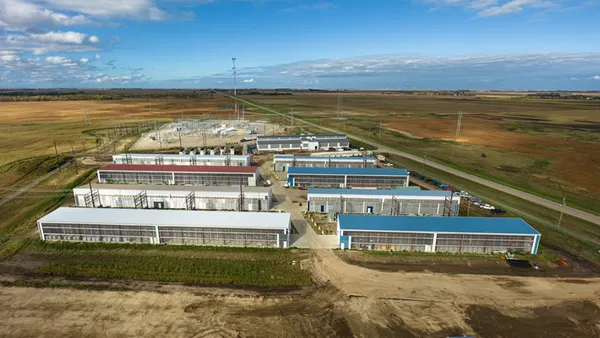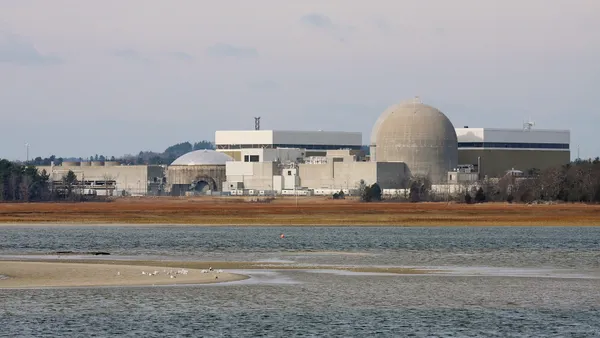Dive Brief:
- While utilities are in the best position to define problems with distributed resource integration, the planning process could better involve other stakeholders, Exelon's director of utility innovation, Susan Mora, said on a Wednesday panel about grid mod proceedings and distributed resource integration.
- One potential avenue, which is being explored by Exelon subsidiary Potomac Electric Power (Pepco), is to create formal opportunities to involve developers and consumer communities earlier, Mora said. She shared her insights — based on PEPCO's involvement in the Washington, DC initiative Modernizing the Energy Delivery System for Increased Sustainability (MEDSIS) — at the 2019 National Association of State Energy Officials (NASEO) Energy Policy Outlook Conference.
- Conversations with the utility outside of regulated dockets or state legislative proceedings could simplify grid modernization efforts, Malcolm Woolf, an advisor at the energy trade group Advanced Energy Economy, said on the panel. He suggested an off-the-record conversation without press, facilitated at the state level, to
Dive Insight:
DC's MEDSIS proceeding in Pepco's territory is the third grid modernization docket opened in the six territories served by Exelon, after Illinois and Maryland.
The more traditional planning process for grid modernization can lead to a lot of stakeholder pushback when a utility's recommendations are added into the utility's regional capital budget plan.
"There [are] lots of interesting ideas that come from the developer community, from the customer community and so forth," Mora told Utility Dive following the panel.
"I think what we're learning from these grid mod proceedings is that you have to have a structured approach to that; it can't just be a free-for-all, everybody throw ideas on the table," she added.
Pepco is considering a process that formally invites stakeholders to share input for MEDSIS' non-wires alternatives planning. The utility would issue an initial request for information and would internalize those comments, which would affect a subsequent request for proposals.
In this way, "we've given an opportunity for the big ideas to come forward for people who may not have a product to sell right away," Mora said.
However, a greater opportunity to be involved in regulatory proceedings could be viewed by some developers as a burden.
"A lot of these technologies provide multiple services and they don't have the bandwidth to engage in every single proceeding," Woolf, a former director in the Maryland Energy Administration, told Utility Dive.
"Third party providers want to be more engaged but there's a real capacity asymmetry," he said, regarding the bandwidth of developers to participate in Pepco's service area, along with their other respective markets.
"DC has extremely ambitious DER goals, and therefore they can get into this idea of wanting to embrace a new system" planning process, Mora said.
During the panel, the Electric Power Research Institute presented its white-paper published last summer, "Developing a Framework for Integrated Energy Network Planning," about regional circumstances, opportunities and planning challenges across the country.
Mora also congratulated the NASEO partnership with the National Association of Regulatory Utility Commissioners (NARUC) for their 2018 announcement of a joint task force to develop new approaches to better align distribution system planning and resource planning processes. NARUC's Winter Policy Summit kicks off on Sunday.
When asked about grid modernization proceedings in Exelon's other service areas, Mora mentioned New Jersey's legislative efforts under Democratic Gov. Phil Murphy's clean energy agenda. "But effectively, if you look at New Jersey, they're talking about a lot of the same issues" being discussed in regulatory dockets like DC, she said.
She added that she wouldn't be surprised if Pennsylvania and Delaware also focused on a grid mod proceeding, although it's not "right down the pike" for their regulatory commissions.













